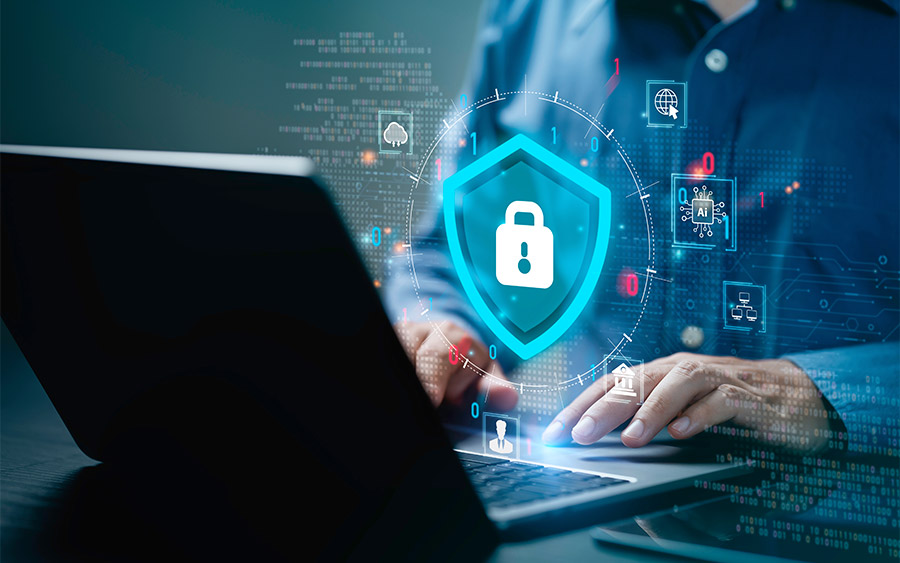Protecting your personal data online: a comprehensive guide
A comprehensive guide to protecting your personal data online, highlighting common threats and offering practical advice on how to reduce risk and regain control of your digital life.

Protecting your personal data means not only ensuring your online security, but also preserving your privacy and avoiding sometimes serious inconvenience. According to ExpressVPN, a VPN provider, it’s essential to equip yourself and raise awareness to limit the risks.
Why is data protection essential?
We live in an age where every aspect of our daily lives is digital: whether it’s for :
- our professional exchanges,
- our online purchases,
- our interactions on social networks,
- or our Internet searches.
This digital transition, while beneficial, exposes us to a major new issue: the protection of our personal data. This information, often invisible to us, nevertheless forms an essential part of our digital identity.
Your personal data is not limited to your first name, last name or address. It also includes :
- your browsing habits,
- your purchasing preferences,
- your contacts, your private messages,
- and even your bank details.
This data, when it falls into the wrong hands, can be used for malicious purposes such as identity theft, extortion or unwanted advertising campaigns.
At a time when cyber-attacks are becoming increasingly sophisticated, when companies are collecting and analyzing our information for commercial purposes, and when data leaks are commonplace, protecting your online privacy has become an imperative.
Beyond the immediate risks, poor data management can have long-term repercussions.
Imagine, for example, that a potential employer stumbles across inadvertently shared personal information, or that your bank details are compromised due to a security breach.
Protecting personal data isn’t just a technical gesture: it’s a proactive approach to controlling your image, your security, and your peace of mind.
In this article, we’ll explore the threats to which your data is exposed and suggest concrete solutions to protect it effectively.
Whether you’re new to digital security or simply looking for best practices, this guide will help you take action to regain control of your digital life.
The main threats to your data
Cyber attacks and malware
Hackers use malware to infiltrate your devices, steal your data or demand ransom. A simple visit to an unsecured site can be enough to compromise your information.
Phishing
Fraudulent e-mails or SMS messages, imitating legitimate institutions, are designed to steal your banking credentials or other sensitive information. This type of attack is one of the most common.
Corporate data leakage
Even if you secure your devices, the companies that collect your data can be hacked. Your information then becomes accessible to malicious third parties.
Practical tips to protect your data
Use complex passwords
Choose unique passwords that are difficult to guess. Opt for long phrases, combining numbers, letters and special characters.
Activate two-factor authentication (2FA)
This method adds an extra layer of protection by requiring confirmation via a code sent by SMS or generated by an application.
Be careful on public Wi-Fi networks
Public networks are vulnerable to data interception. If you must use them, avoid entering sensitive information such as passwords or bank details.
Update your devices regularly
Updates often include essential security patches to protect your devices against new threats.
Limit the information you share online
Think twice before publishing details about your personal life. The less you share, the less vulnerable you are to attack.
The importance of secure browsing
When surfing the Internet, it’s essential to choose sites using the “https” protocol. This protocol guarantees encryption of your data, reducing the risk of interception.
Protecting your online information is a proactive approach. By using the right tools and adopting good practices, you can limit your exposure to threats.
Simple but effective digital habits
Here are a few key actions
- Delete online accounts you no longer use.
- Regularly check the permissions of the applications you install.
- Back up your data on secure media to avoid losing everything in the event of an attack.
In conclusion
Protecting your personal data online is not an option, but a necessity in an increasingly connected world.
Every click, every interaction, every transaction on the Internet can potentially expose your information to risk. However, by adopting simple, effective practices, it is entirely possible to reduce these threats and regain control of your digital life.
By implementing strong passwords, enabling two-factor authentication, limiting the information shared online and using appropriate protection tools, you create a solid barrier against cyberattacks.
These gestures may seem basic, but they represent powerful solutions for ensuring the security of your data.
It’s also important to remember that digital security isn’t just about technological tools. Above all, it requires constant awareness and daily vigilance. This means..:
- check e-mail sources,
- pay attention to the sites you visit,
- and think about every piece of information you decide to share online.
Finally, adopting secure browsing, as recommended by VPN provider ExpressVPN, is an essential step in guarding against online threats. With a proactive approach, you can significantly reduce your vulnerabilities while guaranteeing the confidentiality of your data.
Online security is not a luxury, but a responsibility to yourself and your loved ones. Take the time to implement these protective measures, because every effort counts in the fight against cyberthreats. It’s up to you to make your digital future safer and more secure!